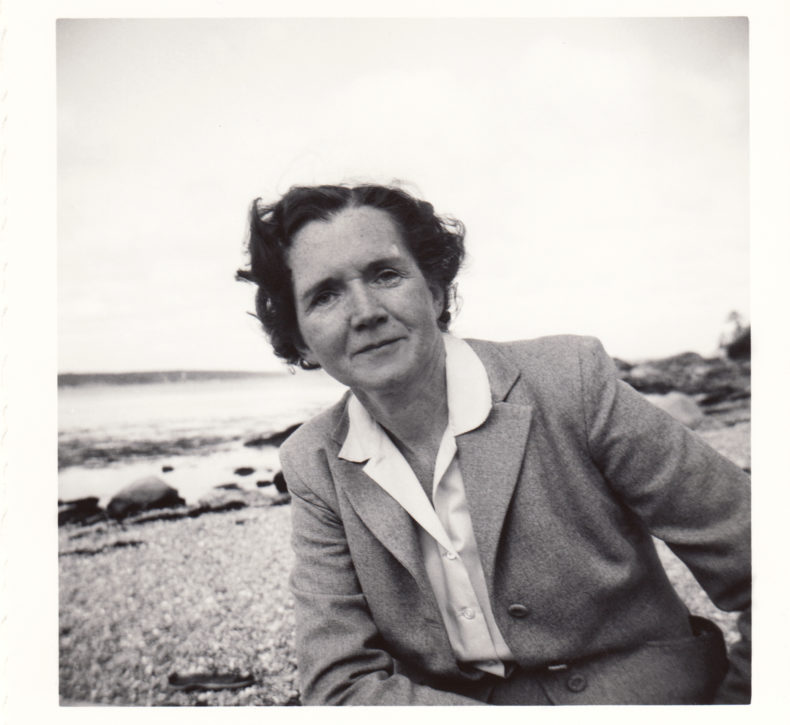 On Monday, the Trump administration instructed U.S. Environmental Protection Agency staffers to freeze all of the agency’s grants and contracts—cutting off financial support for many state and tribal environmental protection programs. (Staffers were also told not to discuss the freeze with anyone outside the agency, but the news was quickly leaked to both ProPublica and the Huffington Post.)
On Monday, the Trump administration instructed U.S. Environmental Protection Agency staffers to freeze all of the agency’s grants and contracts—cutting off financial support for many state and tribal environmental protection programs. (Staffers were also told not to discuss the freeze with anyone outside the agency, but the news was quickly leaked to both ProPublica and the Huffington Post.)
So it’s especially appropriate, and poignant, that a terrific documentary about Rachel Carson is airing on PBS this week. Carson’s book Silent Spring, and the public outcry it caused, helped persuade President Nixon to create the Environmental Protection Agency in 1970. The agency was charged with protecting human health by safeguarding the air, water, and land, and while the EPA is anything but perfect, it is safe to say that hundreds of thousands of Americans are alive today thanks to its regulation of carcinogenic pesticides, lead paint and leaded gasoline, asbestos, ozone-destroying CFCs, and any number of other poisonous, polluting, and life-shortening substances. Carson’s bureaucratic legacy is massive but, for many of us, largely invisible, and the documentary is a timely reminder that it still can’t be taken for granted.
We’re indebted to Carson for other reasons, too. The PBS documentary, which draws from William Souder’s excellent 2012 biography On a Farther Shore, is a detailed, sympathetic, and inspiring look at Carson’s life, from her early love of writing and nature through her abbreviated academic career, her runaway success as a nature writer, and, finally, her brave confrontation of the chemical industry in Silent Spring, a book she completed, promoted, and defended while suffering from terminal cancer. She was intensely private, intensely determined, and intensely devoted to her few confidantes and to the well-being of both humans and the natural world. In fact, her most important and lasting message may have been that humans are part of the natural world, and what we do to nature we do to ourselves.
While it’s easy to see Carson as the archetypal lone warrior, the David to the chemical industry’s Goliath, her story is more complicated. Carson was a brilliant synthesizer, translator, and writer, but her case against unregulated pesticides would not have been heard if the country hadn’t been ready to hear it. During the years Carson was writing Silent Spring, battling illness and balancing her responsibilities as the adoptive mother of her orphaned grand-nephew, many Americans came to share her fears. Following a series of highly public tragedies and mishaps, the celebrated miracles of modern technology—pesticides, nuclear weapons—had started to look at least as dangerous as the problems their inventors had promised to solve. By carefully amassing and explaining the scientific evidence, Carson showed the public that their worries were more than warranted, and a movement was born. When Carson died in 1964, the movement was large enough to march on without her.
Carson didn’t change the world by herself, but through hard thinking and good timing, she made it possible for others to do so. Talk about a timely reminder.
Top: Rachel Carson on the coast near her cottage in Southport, Maine, in 1955. Photo courtesy of Martha Freeman via PBS.
It is a terrific PBS show inspiring action wherever it is needed.
I agree, but I must add that Linda Lear’s “Rachel Carson: Witness for Nature” (Henry Holt, 1997) is the definitive Carson bio.
I rely on CPB/ SOCAL PBS for news, information, and entertainment. They are all being placed in jeopardy by the new administration in Washington DC. I saw the documentary on Rachael Carson last night and it was emotional and motivating for me to learn of her work. I will be reading her books and am inspired to get busy with environmental issues again. I have Multiple Chemical Sensitivity disorder and have experienced health issues with water, chemicals and pesticides. MCS is more prevalent than people realize but is rarely reported. I want to be involved. Any suggestions? Thanks for your article.